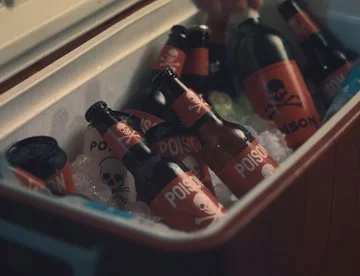Your body converts alcohol to poison.
Reduce your drinking, to reduce the damage.
Campaign background
The ‘What’s your poison?’ campaign prompts people to reconsider the common phrase by showing that when a person drinks alcohol, the body converts it to acetaldehyde, a poison.
It explains that every drink converts to more poison, increasing the damage, and increasing the risk of cancer. The campaign calls for Western Australian adults to reduce their drinking to reduce the damage.
The campaign was developed in consultation with over 130 Western Australian adults, guided by experts in public health, research and social marketing.
A series of assets targeting Western Australian Seniors, aged 65 years and over, were added to the campaign in May 2025.
The campaign is a joint initiative by the Mental Health Commission and Cancer Council WA, supported by Healthway and is part of the WA Government’s state-wide strategy to prevent and reduce harm caused by alcohol. It is the fifth instalment of the Alcohol and Health campaign stream since the Alcohol. Think Again program commenced in 2010.
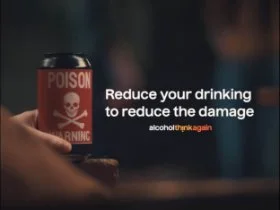
Key messages
- Your body converts alcohol to poison.
- Reduce your drinking to reduce the damage.
- There's so much to gain when you reduce how much you drink.
Target audience
- Primary target audience: All adults in Western Australia.
- Secondary target audience: Adults who exceed the National Health and Medical Research Council's (NHMRC) Australian Alcohol Guideline.1
- Tertiary target audience: Western Australian Seniors, aged 65 years and over.
Campaign objectives
- Increase awareness about how alcohol causes harm to health.
- Increase awareness among adults that their current drinking can impact their health.
- Increase intention, confidence and self-reported action to reduce alcohol use.
Evidence to support the campaign
The need
- Around one in three adults (33%) who drink alcohol exceed the NHMRC’s Australian Alcohol Guideline.2
- Nearly two out of three WA adults (63%) who drink above the Guideline consider the amount they drink to be ‘OK’.3
- Only just over half of WA adults (57%) are confident that alcohol is poison3
- On average, 3 West Australians die from cancer caused by alcohol each week in WA.4
Your body converts alcohol to poison
Alcohol has toxic effects on cells, tissues and organs in the body. This is caused by:
Ethanol
- Ethanol is the main component of alcohol. Ethanol is a Group 1 carcinogen, meaning it is a known cause of cancer, in the same category as tobacco and asbestos.5
Acetaldehyde (pronounced a-suh-tal-duh-hide)
- When your body breaks down alcohol, it is converted to acetaldehyde, a highly toxic chemical and Group 1 carcinogen.3 Acetaldehyde damages DNA in cells and stops them from repairing the damage. This can build up and cause irreversible damage which can lead to cancer. 6,7
- Acetaldehyde is around 10 times more toxic than ethanol.8 High levels of acetaldehyde in the body can cause headaches, nausea, increased heart rate, and facial flushing; symptoms commonly associated with a hangover.9
- Over 90% of alcohol is broken down and converted to acetaldehyde by enzymes in the liver. A small amount of alcohol is broken down in the mouth, stomach and intestines.
- Your body can only metabolise around one standard drink of alcohol per hour. The more you drink, the more your body is exposed to the damaging effects of acetaldehyde.
There is no safe level of alcohol
- Alcohol causes cancer in at least seven sites of the body:10
- breast
- bowel
- mouth
- larynx (voice box)
- oesophagus (food pipe)
- pharynx (upper throat)
- liver
- Even drinking small amounts of alcohol increases your risk of developing cancer. The more you drink and the more often you drink, the greater your risk. 11
- Alcohol is directly linked to over 40 medical conditions, including heart disease, stroke, liver disease, mental health conditions, and fetal alcohol spectrum disorder.12
Australian Alcohol Guidelines
- The NHMRC's Australian Alcohol Guidelines1 recommend no more than 10 standard drinks a week and no more than 4 standard drinks on any day to reduce the risk of alcohol-related disease and injury. The less you drink, the lower your risk of harm.
- Healthy adults who stick to the Australian Alcohol Guidelines have less than a 1 in 100 chance of dying from an alcohol-related condition.
- The Guideline can help Australians to make informed decisions about how much alcohol they drink, if any.
Media strategy
To be updated by Izzie
Campaign resources
Television commercials
30 and 15 seconds
Online videos
6 and 15 seconds (WA Seniors)
If you would like to download the radio commercials, please contact as at campaigns@mhc.gov.au.
Outdoor advertising
 Large format |  Large format |
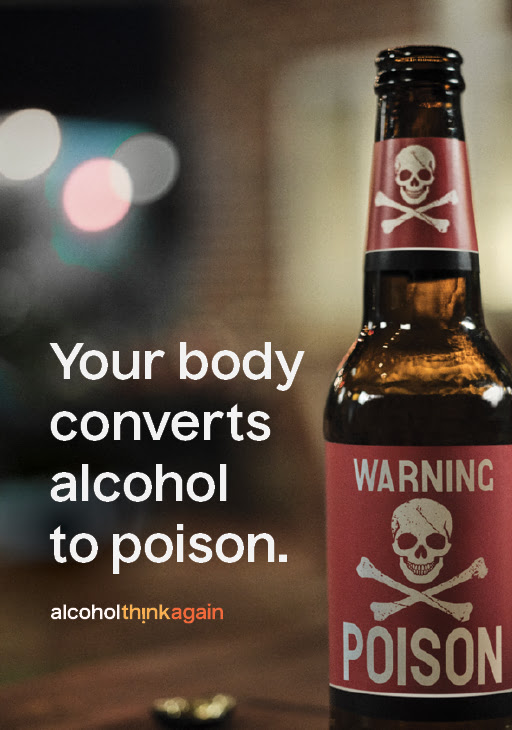 Small format
Small format
Primary social media video assets - Reel Format (9x16)
 |  |
 | .gif) |
Targeted social media video assets - Reel Format (9x16)
 |  |  |
Message 1: "Even small reductions in your drinking can make a difference. Try switching to low or no alcohol options." Message 2: "Drinking less can boost your mood, you might be surprised by how good you feel." | Message 1: "Drinking less can lead to a better night sleep. Your body will thank you." Message 2: "Drinking less can save you money, how would you treat yourself?" | Message 1: "Challenge yourself to reduce your drinking. Start with a mall change in your routine." Message 2: "Thinking about reducing your drinking? Why not plan a few alcohol -free days a week." |
Static social media assets - Story (9x16) and Feed (1x1) Format
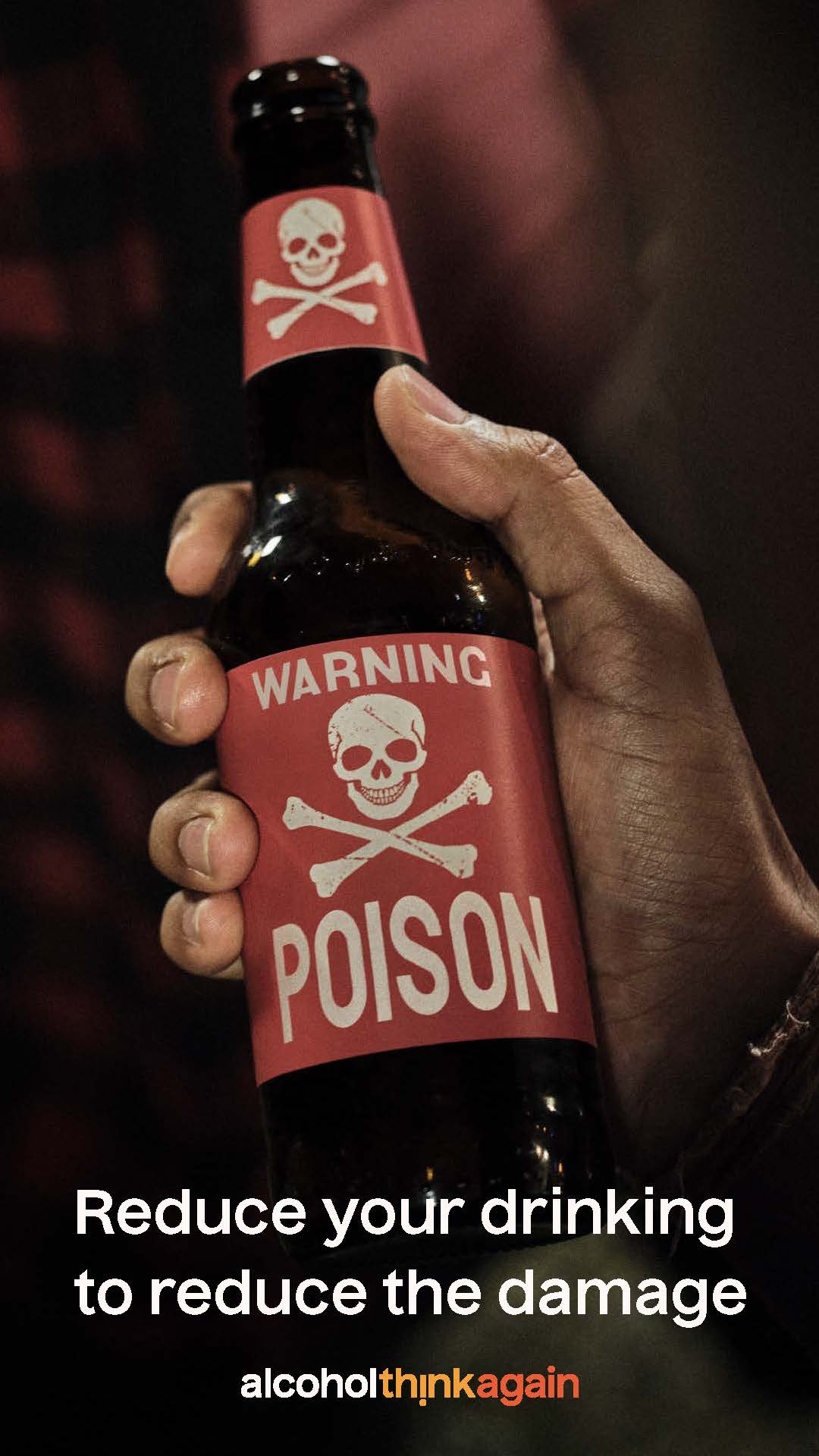 | 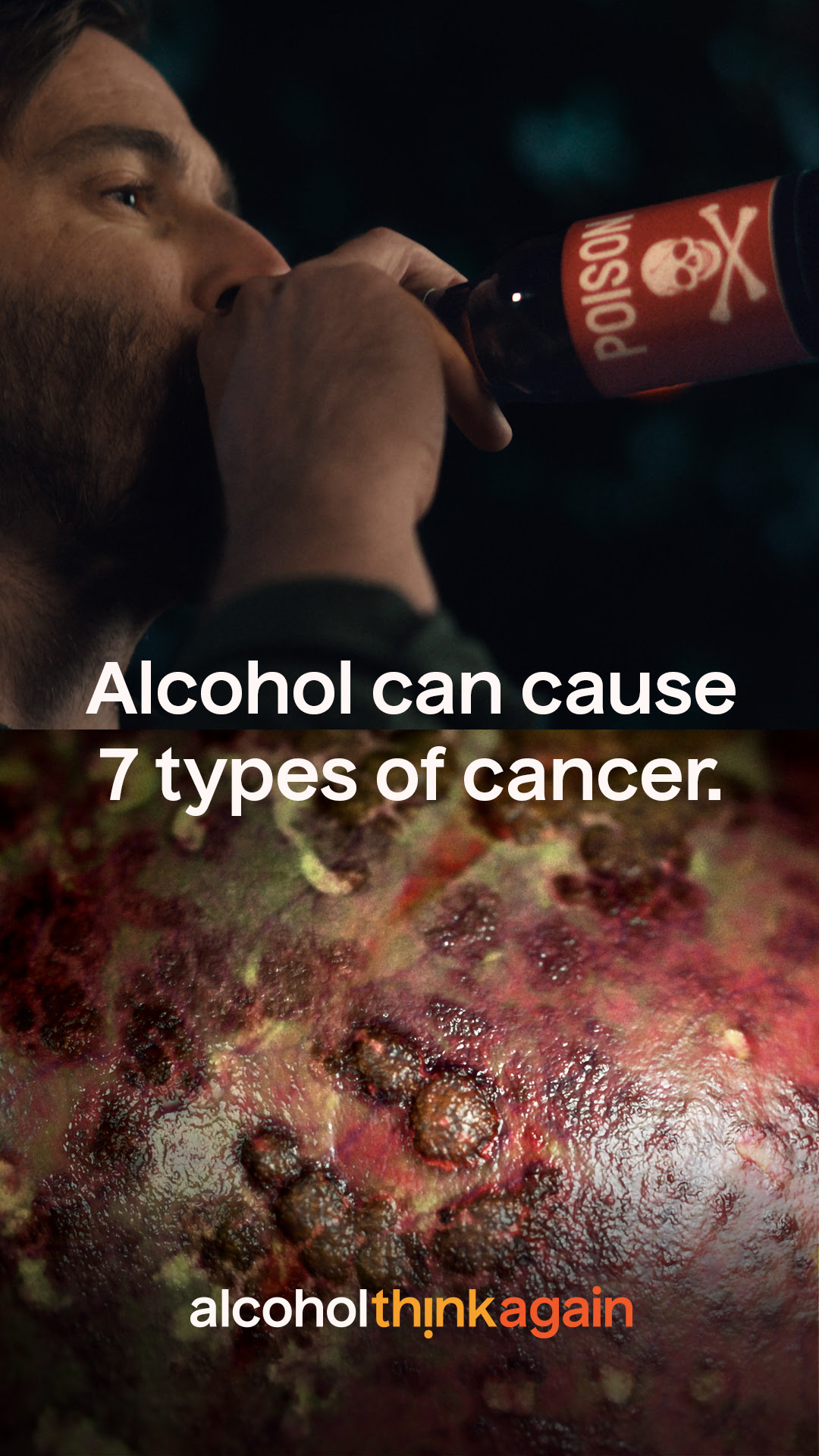 | 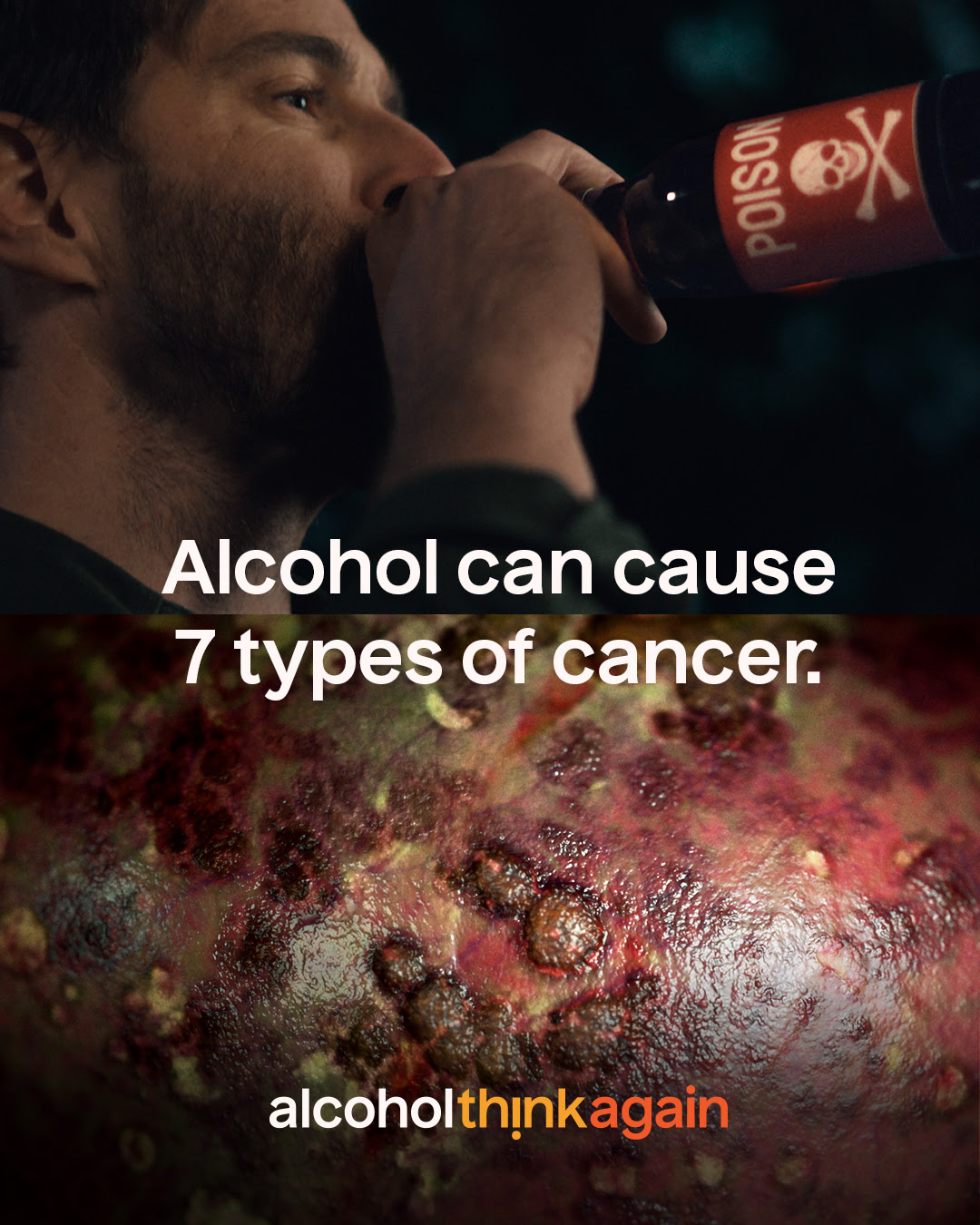 | 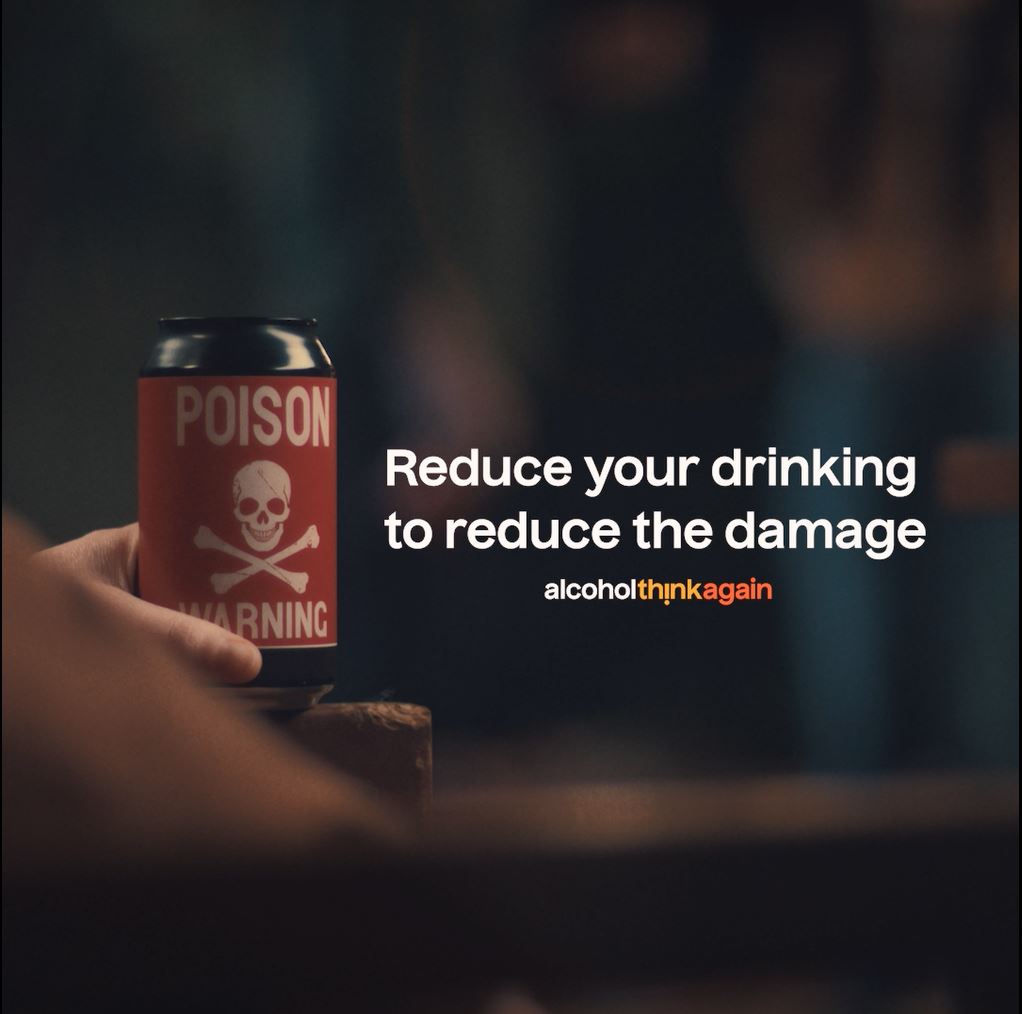 |
 | 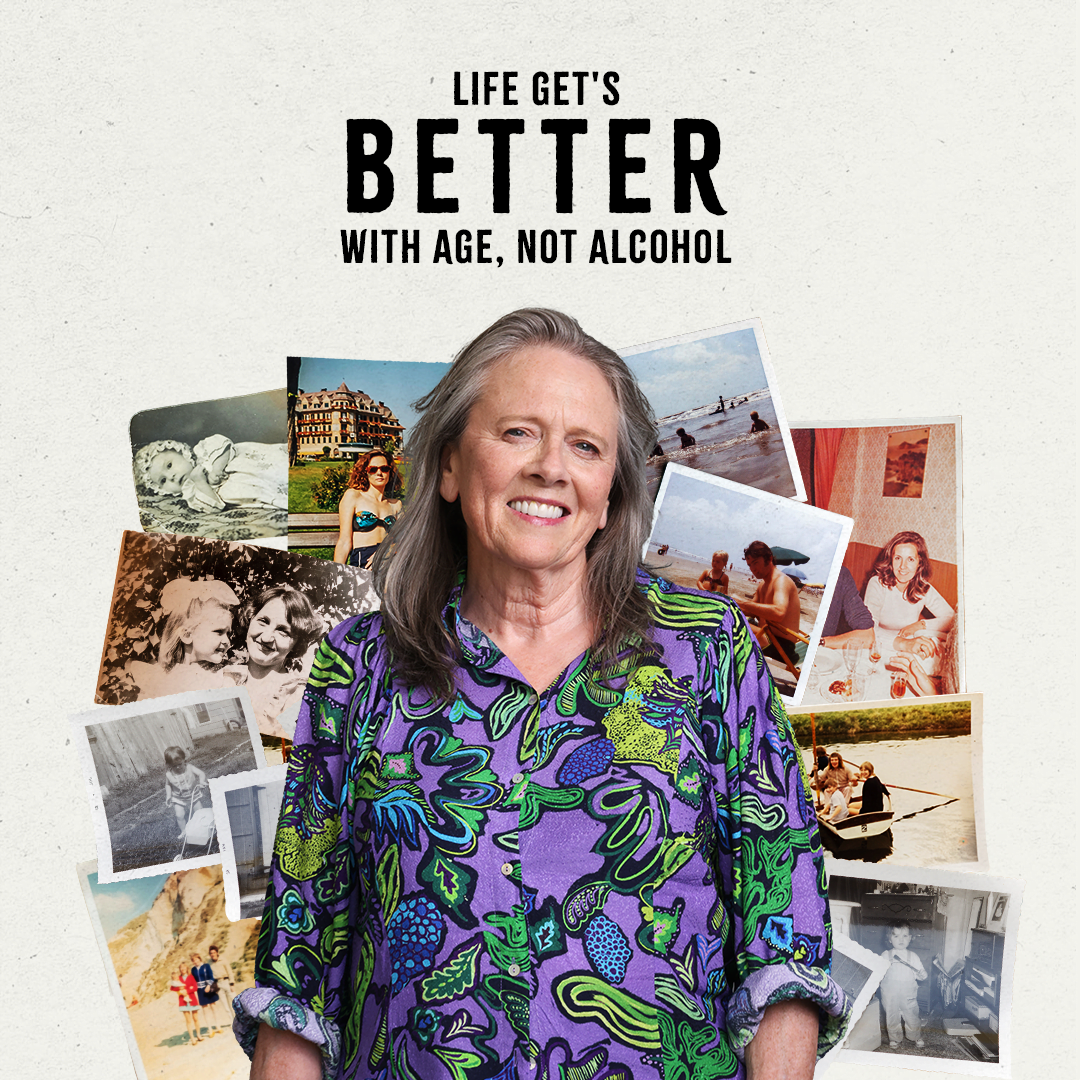 |
Download, share and tag us!
We encourage you to download and share these social media assets through your organisation's social media, website, or newsletters.
Copy option: "Your body converts alcohol to poison, which can cause damage at the cellular level. Reduce your drinking, to reduce the damage."
Hash tags: #AlcoholThinkAgain #WhatsYourPoison #ReduceYourDrinking #AlcoholConvertsToPoison
WA Seniors Copy option: "Life gets better with age, not alcohol. There's so much to gain when you reduce how much you drink. Discover the health benefits - visit the Alcohol. Think Again website to learn more."
Hash tags: #AlcoholThinkAgain #ReduceYourDrinking #WASeniors
Tag us at:Facebook: Alcohol.Think.Again
Instagram: @alcohol.thinkagain_wa
Click here to access the social media posts
Publications
These resources are available to download or can be ordered as hard copies free for use in Western Australia from the Alcohol. ThinkAgain website.
 Campaign poster Campaign poster | 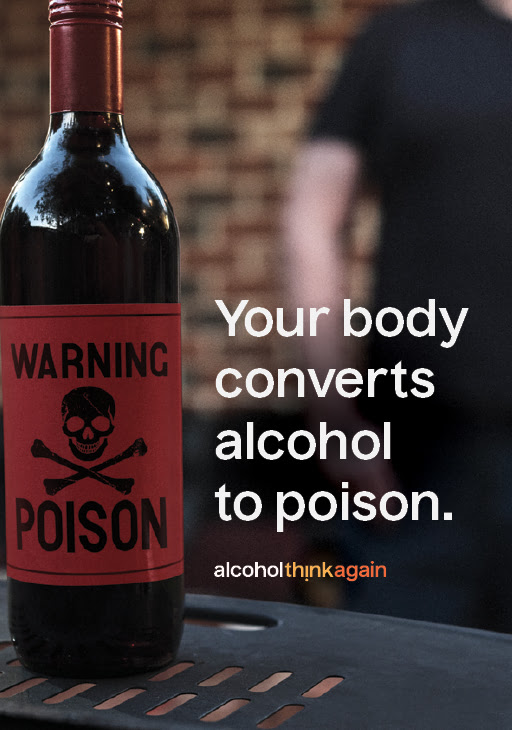 Campaign poster Campaign poster | 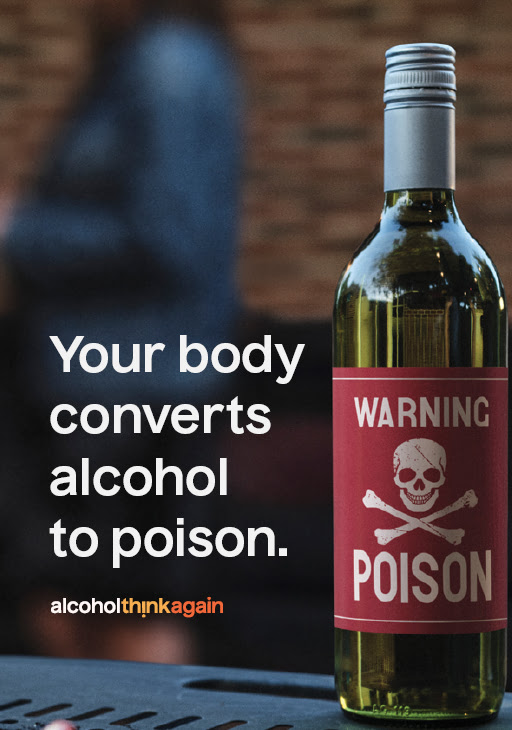 Campaign poster Campaign poster |
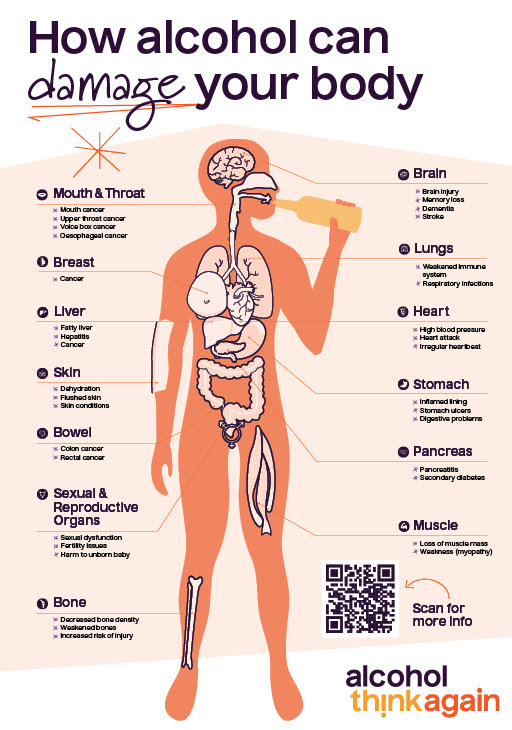 How alcohol can damage your body poster How alcohol can damage your body poster |  Standard drinks A4 fact sheet Standard drinks A4 fact sheet |  Tips to reduce your drinking brochure Tips to reduce your drinking brochure |
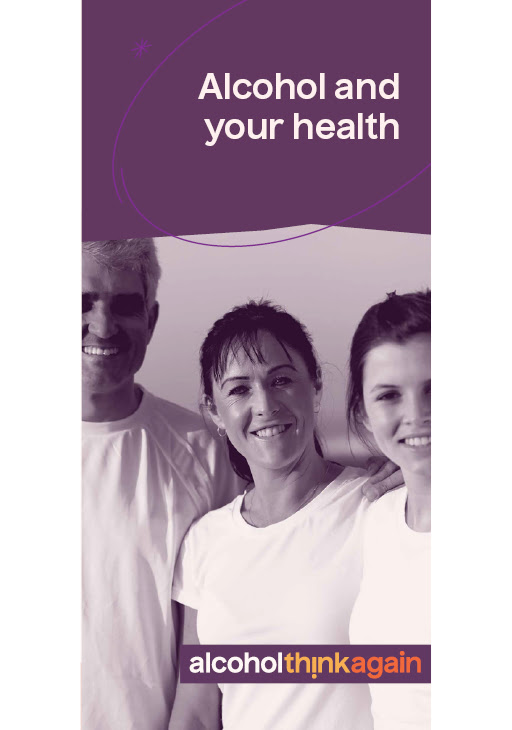 Alcohol and your health brochure Alcohol and your health brochure |
Adapting the materials and branding
If your organisation would like to partner with Alcohol. Think Again to develop additional resources to support local activities, please get in touch with us at: campaigns@mhc.wa.gov.au
Co-branding
The Alcohol. Think Again logo is a registered trademark and must not be used without prior permission from the Mental Health Commission. Any use of the Alcohol. Think Again logo or branding outside these campaign materials requires approval.
Please provide the following information to campaigns@mhc.wa.gov.au:
- Purpose of the publication/materials
- Target audience
- Key messages you are intending to communicate
- Where/how the resource will be used
- How long it will be used for
- When you need approval by
Disclaimer
The resources and materials within this toolkit are designed for the purpose of supporting local alcohol and other drug prevention and health promotion activities in Western Australia. These materials should not be used in such a way or associated with a brand, service or organisation that may reduce the effectiveness and/or integrity of the materials; may damage the reputation of the Alcohol. Think Again brand, or supports, promotes or utilises sponsorship by companies that produce or promote alcohol beverage products or brands. Contact the Community Support and Development Program Team for assistance in interpreting the appropriate use of these materials.
Email: communityprograms@mhc.wa.gov.au
- National Health and Medical Research Council (NHMRC) Alcohol Guideline: To reduce the risk of harm from alcohol-related disease or injury, healthy men and women should drink no more than 10 standard drinks a week and no more than 4 standard drinks on any one day. Alcohol | NHMRC
- Australian Institute of Health and Welfare. Measuring risky drinking according to the Australian alcohol guidelines. 2021. Available from: https://www.aihw.gov.au/reports/alcohol/measuring-risky-drinking-aus-alcoholguidelines/contents/measuring-risky-drinking
- Mental Health Commission. 2023. Alcohol Attitudinal Research 2022. [Unpublished].
- Epidemiology Branch, WA Department of Health. Alcohol-attributable hospitalisation and death data [Unpublished]. 2019.
- International Agency for Research on Cancer. Personal habits and indoor combustions. Lyon, France: IARC, 2012. https://publications.iarc.fr/Book-And-Report-Series/Iarc-Monographs-On-The-Identification-Of-Carcinogenic-Hazards-To-Humans/Personal-Habits-And-Indoor-Combustions-2012
- Connor J. Alcohol consumption as a cause of cancer. Addiction. 2017 Feb;112(2):222-228. doi: 10.1111/add.13477. Epub 2016 Jul 21. PMID: 27442501.
- Cancer Council Victoria. How alcohol causes cancer. Available from: https://www.cancervic.org.au/preventing-cancer/limit-alcohol/how-alcohol-causes-cancer
- Zhang Y, Ren J. ALDH2 in alcoholic heart diseases: molecular mechanism and clinical implications. Pharmacol Ther. 2011 Oct;132(1):86-95. doi: 10.1016/j.pharmthera.2011.05.008.
- Penning R, van Nuland M, Fliervoet LA, Olivier B, Verster JC. The pathology of alcohol hangover. Curr Drug Abuse Rev. 2010 Jun;3(2):68-75. doi: 10.2174/1874473711003020068. PMID: 20712596.
- World Cancer Research Fund/American Institute for Cancer Research. Continuous Update Project Expert Report 2018. Alcoholic drinks and the risk of cancer. Available at https://www.wcrf.org/diet-and-cancer
- University of Sydney. Evidence evaluation report: evaluating the evidence on the health effects of alcohol consumption. Sydney: NHMRC Clinical Trials Centre; 2018. https://www.nhmrc.gov.au/sites/default/files/documents/attachments/Alcohol/9-evaluation-submitted-health-effects.pdf
- Australian Guidelines to Reduce Health Risks from Drinking Alcohol. National Health and Medical Research Council. Commonwealth of Australia, Canberra. https://www.nhmrc.gov.au/about-us/publications/australianguidelines-reduce-health-risks-drinking-alcohol
Alcohol. Think Again
If you would like to discuss the What's Your Poison? campaign, you can submit a form under the contact us page or email us direct.
Email: campaigns@mhc.wa.gov.au
Alcohol and Drug Support Line
The Alcohol and Drug Support Line is a confidential, non-judgmental telephone counselling, information and referral service for anyone seeking help for their own or another person’s alcohol or drug use.
Metro callers: (08) 9442 5000
Country callers only: 1800 198 024
Alcohol Programs Team, Cancer Council WA
The Cancer Council WA Alcohol Programs Team works to inform community discussion about alcohol issues with the aim of reducing the impact of alcohol on the WA community, including as a cause of cancer. Contact the team if you would like to discuss action on alcohol in WA.
Email: alcoholprograms@cancerwa.asn.au
Community Support and Development Programs, Mental Health Commission
Contact the Community Support and Development Programs team at the Mental Health Commission if you need further support to implement campaign materials or to identify what other strategies can be implemented locally to address alcohol issues.
Page last updated15 December 2025


